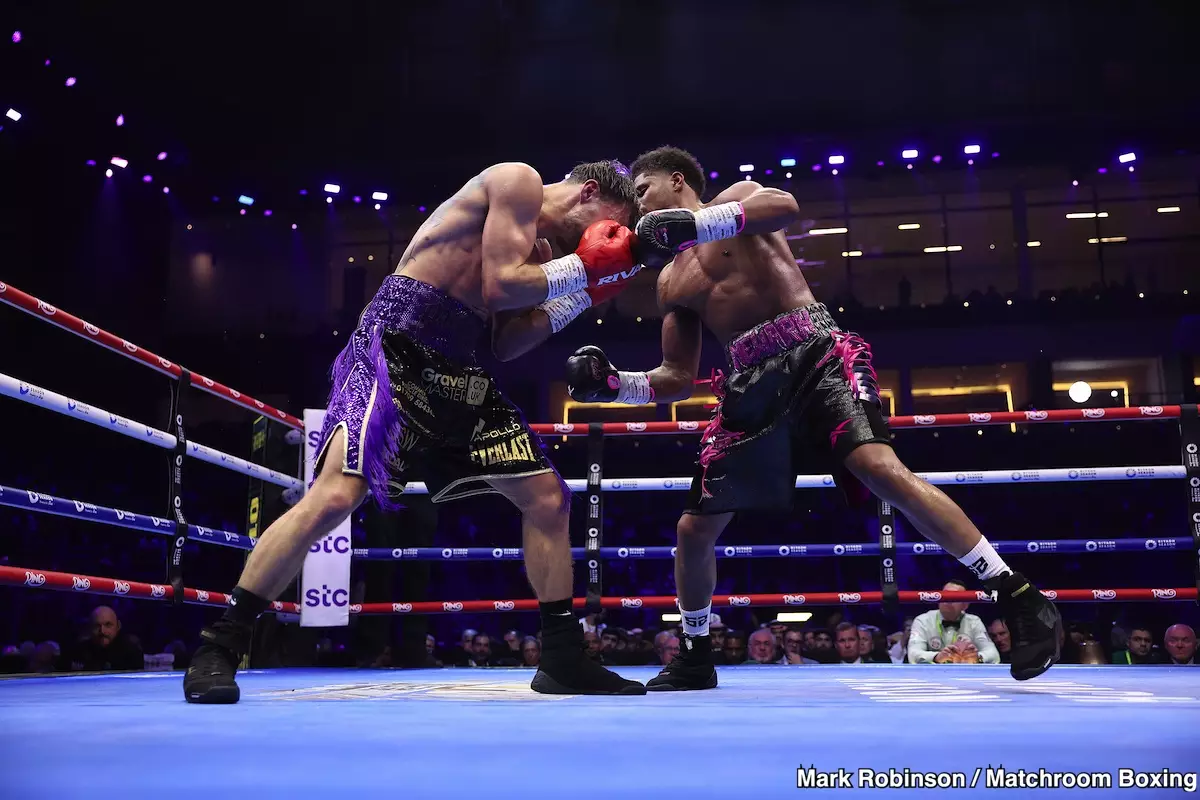Shakur Stevenson has proved his mettle in the ring with yet another successful title defense of his WBC lightweight championship, but his latest bout against Josh Padley has raised eyebrows regarding the quality of his opponents. While Stevenson expresses pride in his performance—claiming he “barely got touched” during the bout—critics argue that his choice of opposition is increasingly concerning. This article delves into frustrations surrounding his matchmaking decisions, the implications for his career trajectory, and the urgent need for Stevenson to face more formidable opponents.
Stevenson’s ninth-round technical knockout victory against Padley at The Venue in Riyadh was undoubtedly impressive on the surface, showcasing his elite skills and boxing intelligence. With a record of 23-0, including 11 KOs, Stevenson has enjoyed a successful stint since moving up to lightweight. However, Padley, who had faced only one notable opponent in his career before this fight, was clearly outmatched. Observers noted how the transition from British-level fighters to the elite scene often requires substantial experience, something that Padley lacked. In this context, it is hard to view Stevenson’s victory as indicative of his readiness for the best fighters in the division.
The mismatch appeared glaring to many. Despite Padley’s commendable efforts and occasional bursts of offense that momentarily made Stevenson step back, he simply did not possess the resources to compete at this level. Stevenson’s dominance raises critical questions about why he continues to be matched against relatively untested adversaries when his talent warrants much stiffer competition.
Turki Alalshikh, in charge of the matches and promoting events, should be advocating for meaningful bouts that challenge Stevenson. The fight against Padley brought up a concern shared widely in boxing circles: the notion that Stevenson has been coddled, orchestrating a protective environment around his career. While Shakur’s proficiency is undeniable, the scrutiny surrounding his choice of opponents is culminating in a growing call for higher-level competition.
Since moving to lightweight, Stevenson has engaged in four fights, with the only genuinely competitive contest being against Edwin De Los Santos. The rest have mostly been lower-tier opponents likely unfit to adequately prepare him for the elite competition. If Stevenson is to cement his legacy and prove he is among the top names in boxing, he must step out of this bubble of carefully curated opponents.
Shakur, in his post-fight comments, noted that he didn’t feel frustration with Padley, indicating that he was content with how the fight played out. He stated, “I was knocking out the ring rust,” pointing toward the need to remain active in the sport. While this perspective presents his mindset as professional and focused on self-improvement, it also rings hollow when measured against his potential. Stevenson’s assertion reveals a lack of urgency to challenge himself against more skilled fighters who can push him, ultimately risking stagnation as he awaits tougher competition.
Admittedly, Padley came into the match intending to fulfill his role, which he executed with determination. Despite his efforts, the absence of noteworthy skills and tools to compete effectively made for a lopsided contest. For Stevenson, while he may deem it a successful night, the net gain in terms of credibility and reputation is questionable.
Looking forward, it is crucial for Stevenson to recalibrate his trajectory. There are promising names like Cuban Jadier Herrera, who boasts an impressive record of 16-0 with 14 KOs, that could provide the type of challenge Stevenson requires. The concerns over his handling of opponent selection are progressively mounting. This is not just about personal advancement; it’s about the integrity of the sport and ensuring fans receive the high-quality matches they deserve.
Stevenson faced criticism for his initial choice of Floyd Schofield as an opponent, only to see the bout fall through due to illness. However, this opening should serve as a lesson for Team Stevenson: matchup decisions must prioritize credible challengers over promotional strategies that backfire. A path laden with weak opposition can potentially taint his accomplishments.
While Shakur Stevenson is an undeniable talent with a bright future, he is at a crossroads where he must confront the expectations tied to his abilities. If he wishes to etch his name among boxing’s elite, the call to action is clear: embrace challenges, seek out genuine contenders, and invest in the kind of bouts that not only test him but also entertain and excite fans of the sport.

